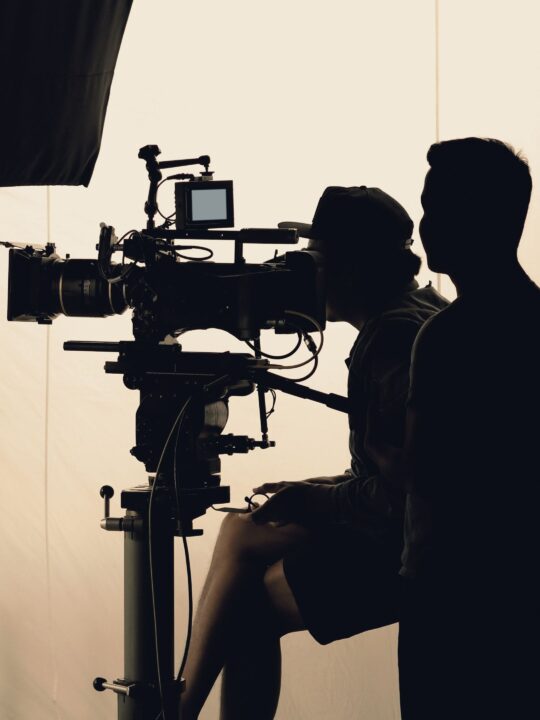What if… TV reboot culture is driven by overchoice?

We’ve all been there. We sit down in the evening and begin the fateful scroll through our preferred streaming service. As we make our way through endless unknown titles, we are overwhelmed with ‘newness’. Hundreds of titles attempt to catch our eyes, but there’s no way to choose. It’s all too much.
Friends it is. Again.
As human beings, we are drawn to the familiar. This is true in many facets of life, but it’s especially true when it comes to entertainment. We love to cycle back to what we know, repeatedly giving birth to the latest incarnations of our all-time favourites. Welcome to the age of the reboot.
The Trinity McQueen Media Team has had the pleasure of helping with many TV reboots over the years, including shows like Who Wants To Be A Millionaire, Tipping Point, and Top Gear (to name but a few). It was therefore fascinating to attend the recent Royal Television Society discussion on The Art of the Reboot, where we witnessed an esteemed panel give their take on the rise of TV reboots in recent times. On the panel, we heard from:
Katy Manley – Managing Director, Initial (Big Brother)
Charlie Irwin – Managing Director, Thames (Blankety Blank/Family Fortunes)
Juliet Denison Gay – Creative Director, Hungry Bear (Gladiators)
Paul Osborne – Creative Director, (Survivor)
As you can imagine, there was a wealth of insightful takeaways from the event, much of which concurred with our own thinking. So, what exactly is it that makes a reboot successful? What’s the secret sauce to TV show 2.0? The panellists settled on an intriguing answer…
The art of the reboot is the art of balance. Crafting the optimum ratio between loyalty to the original, and innovation to ensure it resonates with a new and often younger audience, is no mean feat. Knowing what you can’t change is just as important as knowing what you can.
Game shows, for example, often rely on a fixed mechanic — mess with it at your peril. This is often the core aspect of the show that garnered its initial fanbase. Begin to change it, and you can expect resistance.
But it’s not just the content itself you need to be concerned with. It’s the branding too. Even logos and sets must be treated with sensitivity to avoid losing the potential loyalists who will come back to a show that offers powerful nostalgic appeal.
Another key consideration is the presenter, who is often the cornerstone of a successful (or failed) reboot. Over the years we have been called in by Top Gear and Who Wants to Be A Millionaire to assess possible new presenters, and it’s almost an art in itself to find a cast that retains the right balance of chemistry, brand fit and renewal.
Timing and geography will often play a significant part. We were once asked to look at why Big Brother had succeeded in the UK whilst Survivor had underperformed expectations (and conversely why Survivor was a huge hit in the USA, but Big Brother struggled). We found that, over time in different locations, each has thrived with international relaunches. It just took the patience to allow for a version bespoke to its new location to be created, increasing the chance of traction.
In an increasingly fractured TV viewing environment, the ability to relaunch a well-loved brand has huge appeal to broadcasters and streamers because it gets instant recognition and will at least be given a chance — the cut-through is built-in.
But we also left the panel pondering a further question, besides what makes a good reboot. Why are we seeing so many reboots in the first place?
The Say-Do Gap comes into play once again. When you ask, most people will say that they are bored of the same things. They’ll say streaming services need to update their catalogues. They’ll say we want more. We want new. We want bigger, better, original content to keep us entertained.
But is this really the case? When it comes down to it, it’s often familiarity that comes out on top. We gravitate to what we know for comfort and consistency. It’s also often the very fact that we are confronted with so many new options that we do just this. We are paralysed by overchoice, and in such instances, our reflex is to retreat to the familiar, and go with the safe option. We see this phenomenon across numerous sectors, and if you want to learn more about it, check out Simon Shaw’s recent article on the topic of overchoice here.
Reboots are here to stay, and broadcasters need to get under the skin of the why and how to really capitalise on our addiction to the familiar. With the likes of Gladiator, Doctor Who, Big Brother, Frasier and more hitting our screens, it will be interesting to track the success of these ambitious projects. Maybe we’ll be back to offer our two cents in a few weeks…
Want to learn more about how to make a successful TV reboot? Get in touch with Trinity McQueen today.

 Back to articles
Back to articles

